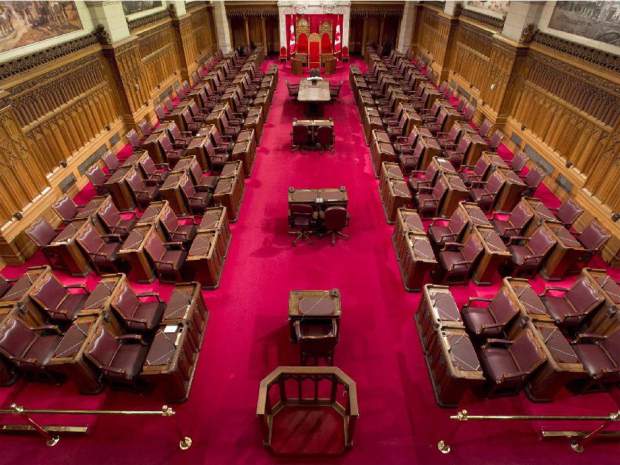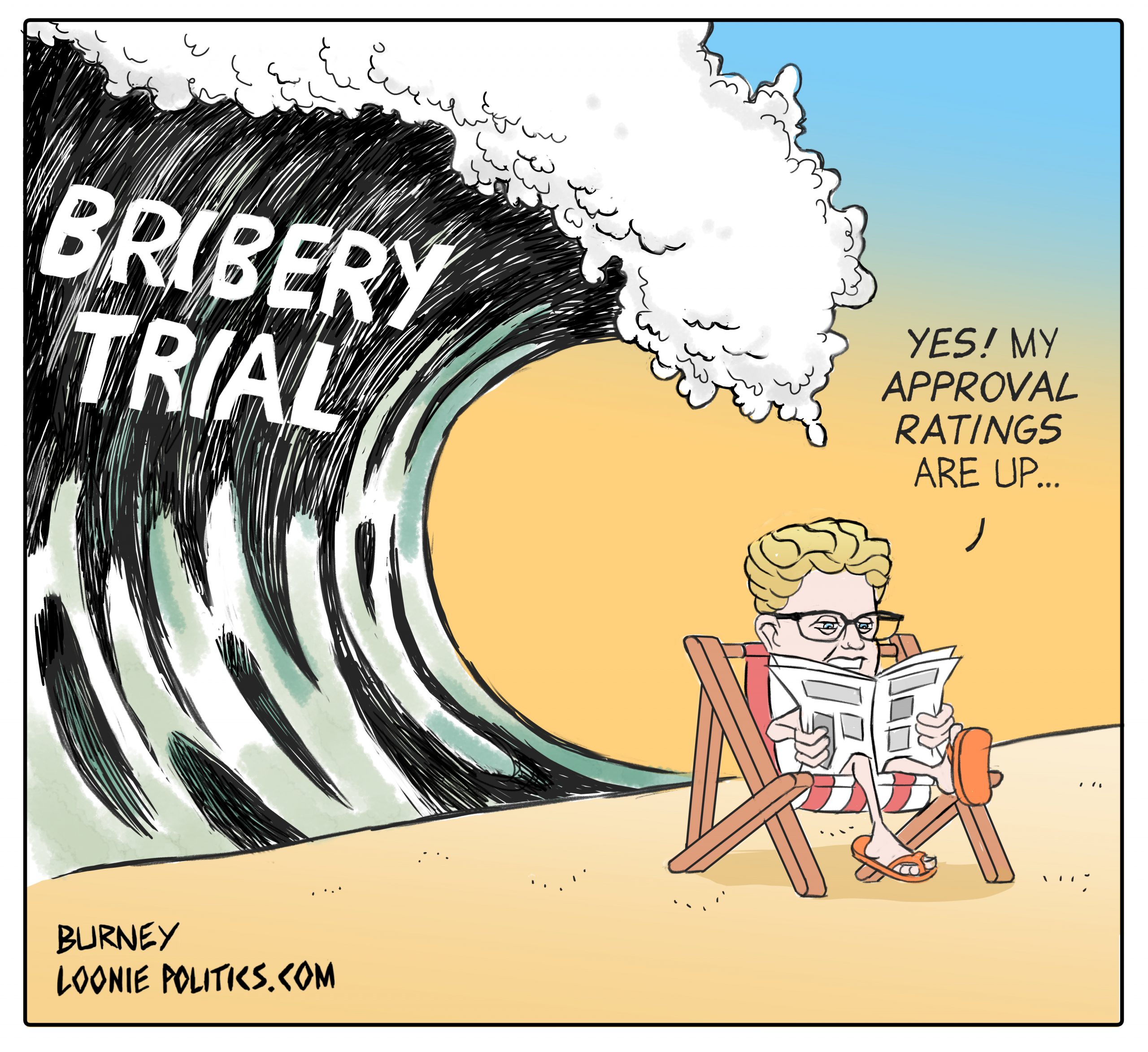Ever since the Auditor General issued his report on the Senate expenses, we have been waiting to see what kind of oversight mechanism the Senate would implement that would provide a better handle on the expenses of the Upper Chamber. While Michael Ferguson was horrified by the fact that senators were making their own rules, and that senators were judging other senators, there was a complete disconnect with the realities of just how a parliamentary democracy operates.
Enter Senator Peter Harder, the Government Leader in the Senate err, "government representative," who wrote in Policy Options on Friday that he was all for the AG's recommendation of a completely external oversight committee to oversee those expenses, and if there were to be any senators that were part of that committee, that they should be in the minority.
Unlike Ferguson, Harder was able to mouth the words about retaining the Senate's ability to be self-governing, which on the surface seemed like a good thing. But Harder then provided a number of examples to prove his point that demonstrated a clear lack of understanding about just how this works.
To begin with, Harder cites the Senate Ethics Officer as an example of independent oversight, whose judgment senators most recently were willing to listen to when it came to the findings of misconduct related to now-former Senator Don Meredith. The hole in Harder's logic? The Senate Ethics Officer is an officer of parliament and not an external body. She reports to Parliament, and indeed to the Senate itself. Indeed, the AG himself is also an officer of parliament, which is one of those process-related reasons why many Senators and MPs didn't want him to be the one auditing the Senate (or the House of Commons for that matter), because Parliament is his boss. For them, they would have preferred an external organization doing the auditing where the lines of accountability were much clearer and more defined.
To bolster his case, Harder pointed to both the Independent Parliamentary Standards Authority that has been set up to oversee the UK's House of Commons, and the Australian Parliamentary Expenses Authority as examples of similar external oversight bodies in other Westminster democracies. The problem, of course, is that things don't necessarily port well, even between Westminster parliaments, in large part because we each have different constitutional frameworks. While both the UK and Australia have created a statutory authority as a solution to different perceived problems in their countries the UK most especially after the expenses scandal in 2009, a scandal which dwarfs what improprieties were found in the Canadian Senate (and a reminder that much of the Auditor General's report here was problematic and based on personal value judgments that would not have withstood the legal scrutiny of a court of law).
Add to that, there has been a definite shift in the UK to start moving "beyond" a system of responsible government, as evidenced by their Fixed Term Elections Act and the ways in which they are now voting on foreign policy as divorced from confidence votes things which have created no end of governance problems in their country that Canada should steer very clear of if we value our system of government.
While Harder may chide Canadian parliamentarians as apparently not being willing to adopt "modern governance practices," while also noting that he would want any independent oversight here to be done on the cheap (because that's a recipe for a good governance), he utterly ignores the key issue, which is maintaining parliamentary privilege.
"Senators must acknowledge that it is inappropriate for them to stand in ultimate judgment of their peers without a reasonable degree of transparency and independent oversight," Harder wrote, and he's half-right that this is an issue that requires transparency, but the degree of independence of the oversight is part of the problem. Parliamentary privilege protects the Senate's ability to be self-governing, and that's part of a separation of powers issue that keeps the courts out of the legislature's domain and vice-versa. A truly independent oversight body blurs that separation, and the protection of those privileges is what allows Parliament and most especially the Senate to discipline its own. If we want the Senate to be able to punish its bad apples, then we need to ensure that its ability to do so isn't compromised by chipping away at those privileges with more "independent oversight."
Harder, of course, tries to be clever about this too, by proposing a compromise that the independent oversight body would not have binding authority over the Senate, but rather just recommend that the Senate vote on its findings. But if that's the case, then why bother going through the charade of creating an independent body that is otherwise toothless?
If the Senate is looking for a model that allows a both a degree of needed oversight with an external view, but which won't compromise parliamentary privilege, then I would suggest that they return to the suggestion that Senator Elaine McCoy has been making since the beginning of the Senate expenses imbroglio, which is to look to the House of Lords' audit body. McCoy's suggestion is that it be comprised of three senators, plus an external auditor and a former judge to arbitrate any disputes that arise. Why the three Senators out of five are important is because it keeps it within the fold of the Senate and its privileges, while still keeping an external eye on the issues at hand, and wouldn't require the kinds of compromises that Harder doesn't seem to have fully thought through.
Ultimately, if one is looking to impose external oversight over our parliament, then we might as well declare that our 169 years of responsible government is a failure and hand power back over to the Queen, because it means that we ultimately can't be trusted to govern ourselves. Otherwise, let's keep Parliament self-governing and demand better mechanisms for transparency that will drive accountability, which can be done without surrendering parliamentary privilege.











